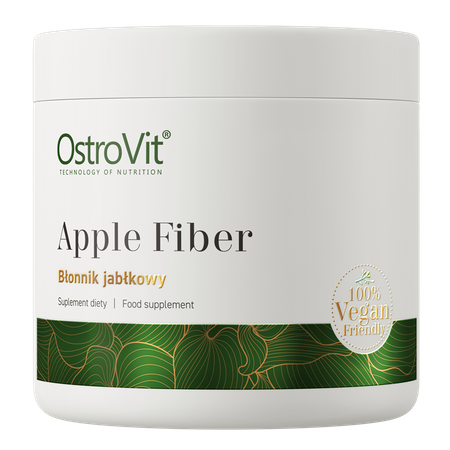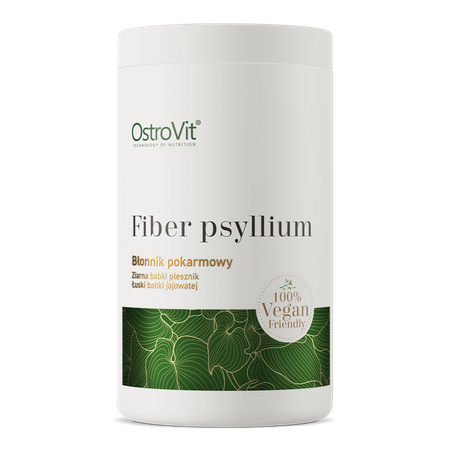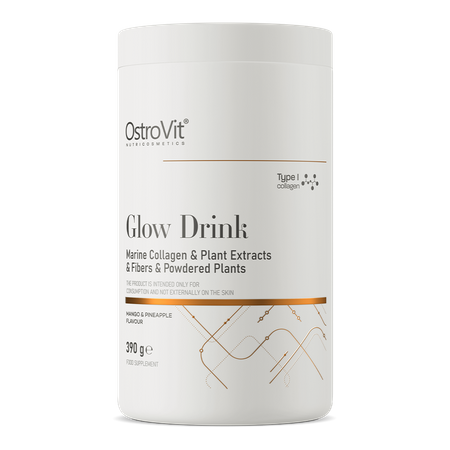Fiber
Fiber is an extremely important nutrient without which the human body cannot function properly. Dietary fiber provides a feeling of satiety, extremely helpful in the slimming process, and also supports the work of the entire digestive system.
Fiber - what is it?
Dietary fiber is otherwise known as dietary fiber, a substance of plant origin that is not digested or absorbed in the digestive tract.
It is a mixture of polysaccharide and non-polysaccharide substances. These elements are often referred to as residual substances, which is why a diet rich in fibre is sometimes referred to as a fibre-rich diet.
The composition of the fiber includes compounds such as:
- cellulose,
- pectin,
- hemicelluloses,
- lignins,
- vegetable gums,
- resistant starch.
Types of fiber
In plant products, we can distinguish water-soluble and insoluble fiber.
Soluble fiber
It is mainly contained in the flesh and includes compounds such as pectins and vegetable gums.
Soluble dietary fiber affects the feeling of satiety as well as cholesterol concentration, helping to reduce the level of LDL. It also reduces fasting blood glucose and levels it after a meal.
Insoluble fibre
Insoluble fiber is found primarily in the skin and seeds of plants, and this group includes lignin, resistant starch, cellulose and hemicellulose.
It affects intestinal peristalsis and increases the number of bowel movements, as well as prevents constipation. Moreover, it provides a longer feeling of satiety.
Sources of dietary fiber
Sources of fiber include many commonly available foods, and above all fruits and vegetables and wholegrain cereal products. An excellent source of fiber are:
- oatmeal,
- oat bran,
- nuts,
- wholegrain cereal products, e.g. wholemeal bread,
- cereal bran,
- dried fruits,
- leguminous seeds (legumes),
- linseed,
- raw fruit, e.g. apples, strawberries, pears, oranges,
- vegetables, incl. carrots, celery, green beans, dark leafy vegetables, cucumbers.
Fiber requirement
According to the World Health Organization, you should eat at least 25 g of fiber a day. The recommendations recommend that the body should receive from 20 g to 40 g of dietary fiber every day, and the exact value depends, i.a. on gender.
The need for fiber can also be calculated using a simple formula. It is enough to divide the current body weight by two. The result obtained then is the individual need for dietary fiber.
Among people suffering from constipation and diabetes, the daily demand for dietary fiber is slightly higher. The data suggest that in the case of these ailments, the daily supply of fiber should be increased to approx. 60 g.
In the case of problems with covering the demand for fiber, dietary supplements rich in this compound come to the aid along with the diet.
Properties of dietary fiber
Dietary fiber plays many important roles in the body, and its action varies depending on the fraction.
Insoluble fiber irritates the intestinal walls, and thus improves digestive processes, accelerates intestinal peristalsis and stimulates blood supply. It also increases the volume of the stool and is responsible for the feeling of satiety. It also affects the proper secretion of digestive juices in the stomach. In turn, soluble fiber protects against diarrhea and thickens the digestive content. It slows down the absorption of glucose, lowers cholesterol and reduces the absorption of triglycerides, and thus can positively affect the lipid profile of the blood. This type of fiber can also cleanse the body of toxic waste products and heavy metals.
The fiber supplied to the body moves through the entire digestive tract and supports the work of the whole organism, namely:
- regulates bowel function,
- improves the digestive process,
- gives a feeling of satiety for longer,
- helps with constipation and flatulence,
- supports metabolism and facilitates defecation,
- may help maintain a healthy body weight,
- can lower cholesterol and regulate blood sugar levels,
- It may have a beneficial effect on blood pressure.
Dietary fiber and slimming
Fiber regulates the peristalsis of the intestines, and by swelling, it fills the stomach and intestines. Thus, it gives a feeling of satiety and reduces the feeling of hunger, while limiting the number of meals consumed. Dietary fiber is also involved in regulating the absorption of fats and carbohydrates in the body.
Products rich in fiber are also low in energy and they do not contain too much fat, so they do not add unnecessary calories to the body.
A high-fiber diet helps control appetite, makes us eat less, and what we eat is healthy. Thus, we provide the body with less fats and sugars, and consequently we lose unnecessary kilograms.
Fiber deficiency
Too little fiber intake contributes primarily to constipation.
Indirectly, too low supply of fiber in the diet may also promote the development of civilization diseases, e.g. atherosclerosis. Besides, a low-fiber diet is usually a high-energy menu, so it can increase the risk of overweight and obesity.
Excess fiber
Too much fiber intake, oscillating around 80 g of dietary fiber per day, or a sudden increase in the diet, may contribute to the occurrence of side effects such as bloating or abdominal pain.
A large portion of fiber may also reduce the effectiveness of some drugs, e.g. cholesterol-lowering drugs, so it is recommended to take them two hours before or after a meal.
Soluble dietary fiber components may also limit the absorption of certain minerals such as iron, zinc or calcium, so do not consume too much fiber during the day.
Natural fiber or in the form of dietary supplements?
The most beneficial and safest form of providing fiber to the body is to provide it with the daily menu. If the diet is varied, rich in fruits and vegetables, there should be no problem with its proper balancing and covering the demand for dietary fiber.
Sometimes, however, it is also worth reaching for dietary supplements rich in fiber. The preparations are recommended for people suffering from constipation, slimming, as well as those who can not provide the right amount of dietary fiber with the menu.
It is also worth remembering that when taking preparations rich in fiber, as well as during a high-fiber diet, regularly supplement fluids to avoid unpleasant ailments from the digestive system.




